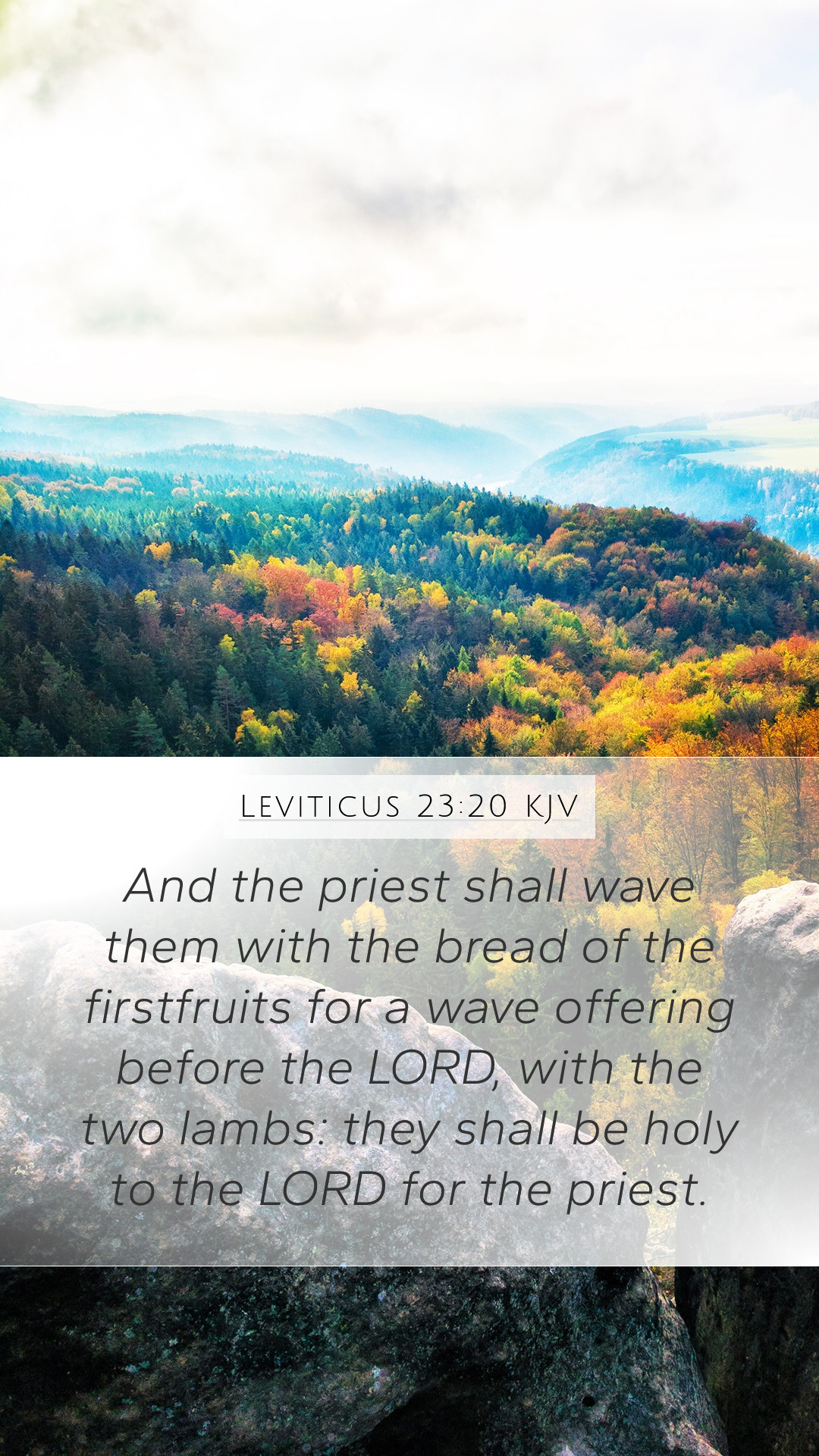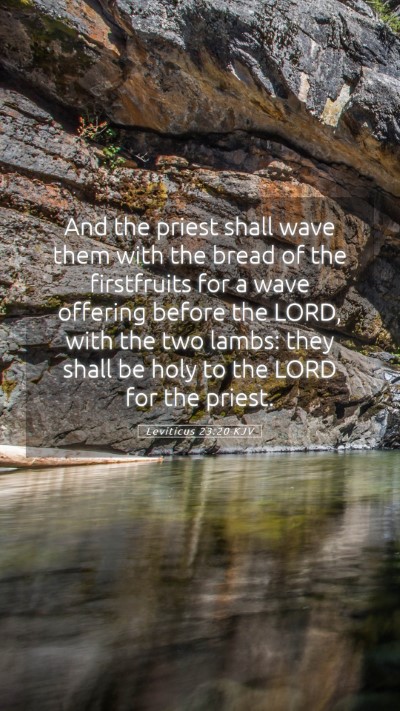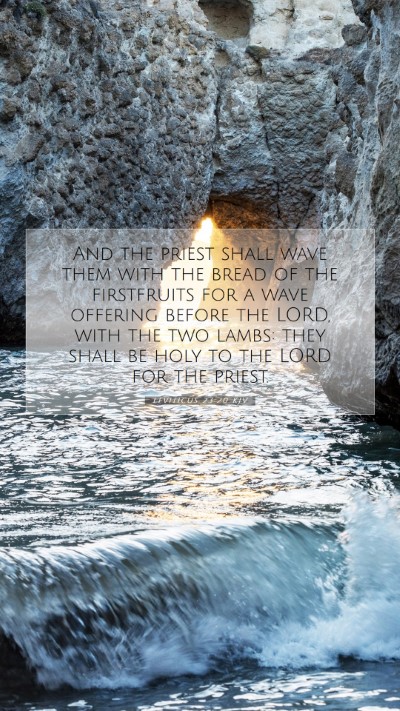Bible Verse Meaning: Leviticus 23:20
Leviticus 23:20: "And the priest shall wave them with the bread of the firstfruits for a wave offering before the Lord, with the two lambs: they shall be holy to the Lord for the priest."
Understanding Scripture
This verse is part of the instructions for the Feast of Weeks, also known as Pentecost, which highlights the importance of firstfruits and offerings in the Israelite worship system.
Bible Verse Interpretations
- Matthew Henry's Commentary:
Matthew Henry emphasizes the significance of presenting the firstfruits to God, portraying it as an acknowledgment of God's provision and bounty. This act symbolizes gratitude and dedication to the Lord, recognizing His blessings in the harvest.
- Albert Barnes's Notes:
Albert Barnes highlights that the wave offering mentioned is an act of consecration and dedication. By waving the bread and lambs before the Lord, the priest was ensuring that the offerings were set apart for sacred use, illustrating the concept of holiness required in worship.
- Adam Clarke's Commentary:
Adam Clarke further explains that this ritual underscores the priest's role as a mediator between God and the people. The waving of the offerings before the Lord signifies God's acceptance and the importance of giving back to God what is rightfully His.
Bible Verse Explanations
This verse serves a dual purpose: it illustrates the customs surrounding the offerings in ancient Israel and stresses the holiness associated with worship. The actions performed by the priest convey more than ritual; they reflect the communal relationship between the Israelites, their God, and the land's produce.
Significance in Biblical Exegesis
Exploring this verse through the lens of biblical exegesis reveals deeper meanings behind the physical acts of worship. The offerings are not merely agricultural but embody the community's spiritual and physical sustenance, rendered back to God with reverence and respect.
Historical Context of Bible Verses
In a historical context, Leviticus was written to guide the Israelites as they established their community and worship practices after the Exodus. By requiring these offerings, God provided a means for the people to demonstrate their dependence on Him.
Application of Bible Verses to Daily Life
Today, though the physical rituals may not apply, the essence of this verse encourages modern believers to recognize God’s provision in their lives. Offering the 'firstfruits' of our time, resources, and efforts reflects our gratitude and prioritizes our relationship with God.
Bible Study Insights
For those engaging in Bible study groups, this verse can spark discussions on themes of worship, sacrifice, and gratitude. It also raises questions about how Christians today can incorporate the principle of giving their best to God in various aspects of life.
Related Scripture References
- Exodus 23:16 - Discusses the feast of harvest and the presentation of firstfruits.
- Deuteronomy 26:1-11 - Provides instructions on bringing the firstfruits and acknowledging God’s goodness.
- John 12:24 - Jesus speaks about grain falling to the ground, symbolizing death and resurrection, relating the concept of firstfruits to the Kingdom of God.
- Romans 11:16 - Paul uses the analogy of firstfruits as being holy, applying the concept to salvation and the inclusion of believing Gentiles.
- 1 Corinthians 15:20 - Discusses Christ as the firstfruits of those who have died, linking the custom of firstfruits to Christ’s resurrection.
- Hebrews 10:5-10 - Explains the insufficiency of sacrifice under the old covenant, leading to the perfect sacrifice in Christ.
- James 1:17 - Highlights every good and perfect gift coming from above, aligning with the theme of gratitude in Leviticus.
Conclusion
Understanding Leviticus 23:20 encourages readers to appreciate the depth of the rituals surrounding worship in the Old Testament and to find relevance in its themes of sacrifice, gratitude, and holiness for application in contemporary Christian life.


